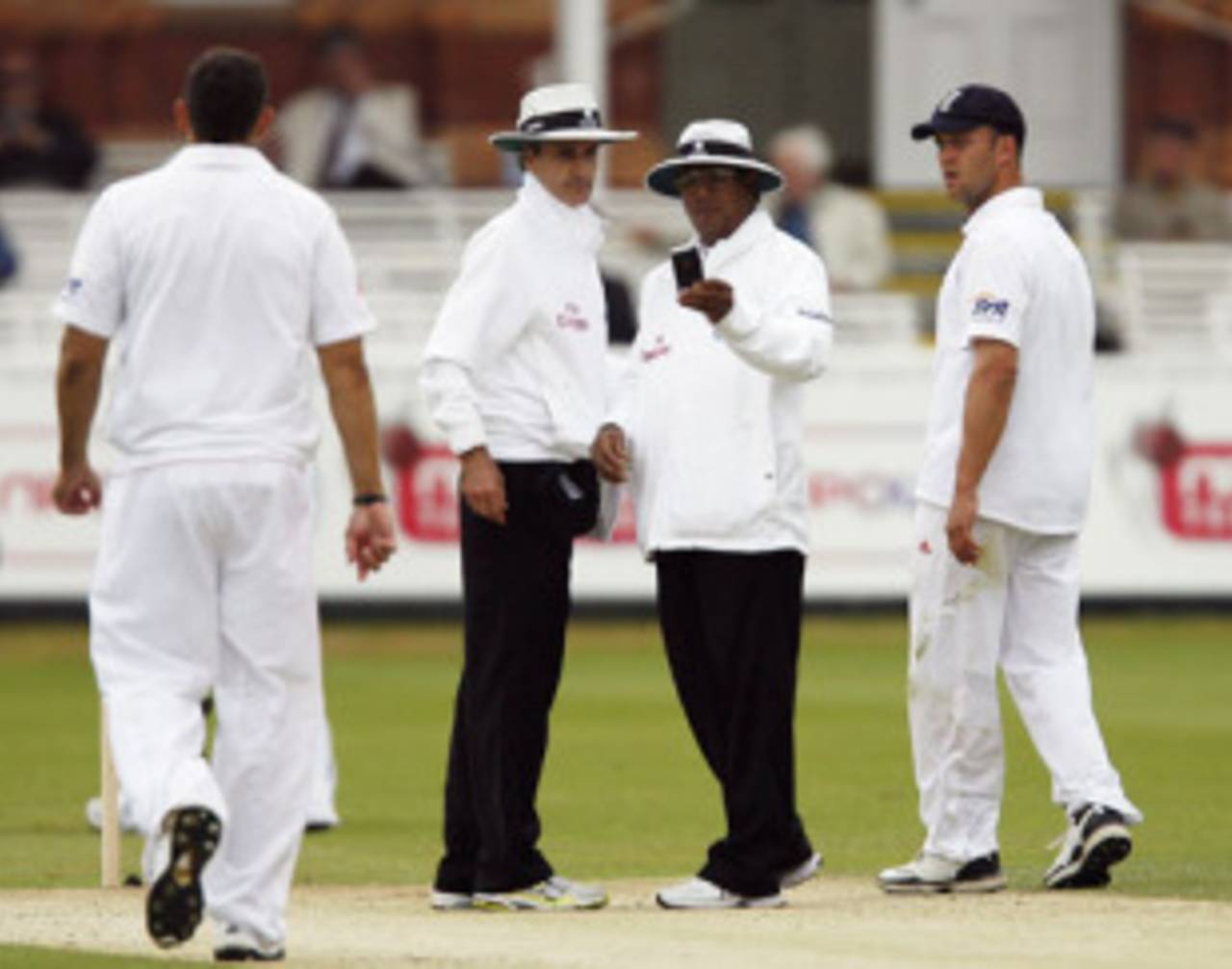Umpires will now make all decisions regarding bad light without consulting the batsmen under amendments to the Laws of cricket that will take effect from October 1.
In practice that has been the procedure followed in recent times with the on-field officials setting a benchmark when they first leave for light, then ending play whenever the reading reaches that level without asking the batsmen whether they want to go. The Laws have been amended to ensure batsmen don't use light as a tactical advantage, such as taking the light after a loss of quick wickets.
At the recent ICC chief executives meeting in Cape Town it was reiterated that international matches should only be suspended when conditions were "dangerous or unreasonable" and that players should not leave the field when floodlights have been switched on.
Elsewhere in the Laws, MCC have reacted to the impact of Twenty20 on fielding by clarifying that a fielder can't start a piece of fielding from beyond the boundary marker, but they can still be airborne over the rope so long as he began the movement started inside the field of play. "Twenty20 cricket has contributed to increasingly athletic fielding standards, and MCC strives to ensure the Laws deal with the challenges posed by the modern game," the statement said.
Other Law changes are aimed at achieving more fairness between the teams. A batsman who damages the pitch will get a single warning, instead of two, before penalty runs are enforced to mirror the same punishment for fielders. Meanwhile, a bowler won't be allowed to cross an imaginary line between the middle stumps when delivering; for example declaring they were bowling over the wicket but releasing the ball as if they were bowling round the wicket.
However, perhaps the Law change that will have most impact on the players themselves is that bowlers are forbidden from bowling the ball into the ground to a team-mate as a warming because MCC says this damages the ball and wastes time.
The two final Law changes deal with very rare forms of dismissal. Law 28.1 has been amended so, if a batsman's bat breaks in the act of playing a shot and the broken part of the bat hits the stumps, he will now be out. A new sub-section has been added to Law 29.1 to protect a batsman who is well in his ground - for example a sprinting batsman who has run past his stumps - but whose feet and bat happen to be in the air as the bails are removed. He will now be ruled in his ground.
